The significance of organic chicken manure as a fertilizer in sustainable agriculture and home gardening is increasingly realized. When included in one’s farming activities, this natural method of fertilization has an array of benefits ranging from soil enrichment to fast growth of vegetation. This blog aims to explore the advantages of employing chicken manure as an organic fertilizer, looking at its nutrient content, effects on the ecosystem, and use procedures. By comprehending the science behind chicken manure and applying it pragmatically, gardeners and farmers can better decide how to grow more healthier plants with higher yields.
The Unique Benefits of Organic Chicken Manure Fertilizer
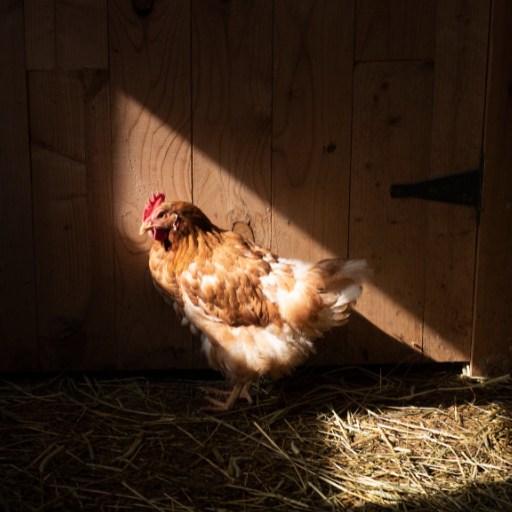
Sustainable farming requires organic chicken manure, rich in vital nutrients like NPK (nitrogen, phosphorous and potassium). Nitrogen is essential for leafy growth, while phosphates help develop roots during flowering. Furthermore, chicken waste improves soil structure by introducing organic material that increases water-holding capacity and aeration. This causes better access to roots and nutrients. Organic chicken waste has slow-release properties, making it steadily deliver nutrients, reducing losses due to leaching and any pollution hazards that may occur from excessive fertilizer applications. Additionally, using poultry manure as fertilizers fosters sustainable agriculture by minimizing reliance on chemical fertilizers and recycling wastes.
How Does Chicken Manure Improve Soil Quality?
Chicken excreta have got several ways of enhancing soil quality. Primary amongst these is its high content of organic matter that increases porosity and aggregation thus improving soil structure. This improvement enhances the drainage system making it conducive for healthy root systems of plants leading to an increase in yield at harvest time. Further, it introduces beneficial microorganisms into the soil that help break down more plant material thereby enhancing nutrient cycling.
Chicken manure contains approximately 1-2% P₂O₅ (phosphorus), 1.5-2.5% nitrogen (N), and 0.5-1.5% K₂O (potassium), making them primary macronutrients released over time by the decay process to sustain plant growth. The slow-release feature prevents nutrient runoff or leaching out into water bodies, thus protecting the latter’s purity as well as reducing environmental impact.
Moreover, this also contributes to the increase in cation exchange capacity (CEC) of soils caused by higher cation retention capability due to the presence of more calcium Ca²⁺ ions on clay particles called humus; unlike sandy soils, where leaching away occurs easily because they lack such property. Furthermore, the manure enhances the soil’s biological activities, hence making it more resilient and robust to support massive plant growth.
Why Choose Chicken Manure Over Synthetic Fertilizers?
There are several reasons why chicken manure is a better option than synthetic fertilizers. Firstly, it provides a complete range of nutrients including trace minerals that aren’t normally available in synthetic alternatives. So, poultry dung has large amounts of organic material, enhancing water retention capacity and minimizing soil erosion. By contrast, these products release their nutrients gradually, minimizing the risk of polluting water through run-off or leaching as opposed to artificial ones. Also, this leads to less chemical usage in agriculture by ensuring that waste from agriculture can be recycled while maintaining soils’ health through its microbiome. On top of all these factors combined make chicken droppings more sustainable and environment-friendly for farmers compared with other types of fertilizers.
What Makes Chicken Manure Ideal for Organic Gardening?
Chicken dung is particularly useful when applied in organic farming because it is highly nutritious, contains natural components and at the same time supports better state of soil welfare. Hence, chicken droppings are ideal fertilizer for crops since they contain nitrogen (N), phosphorous (P), and potassium (K) – vital for growth – in balanced form. The N-P-K ratio lies between 1.1 – 0.8 – 0.5 typically. Moreover, it also contains some micro-elements like calcium (Ca), magnesium (Mg) and sulfur that work together towards improving crop health and general plant wellness by supplying enough mineral elements under favourable conditions for plant nutrient uptake.
One of the major advantages is its organic nature, which improves soil structure by enhancing aeration and water retention abilities. It has been found that chicken manure organic matter encourages microbial activity in the soil, resulting in a healthy and dynamic ecosystem. This enhanced biological activity enhances nutrient cycling and promotes its ability to suppress plant diseases.
The slow-release property of chicken manure ensures that nutrients are gradually made available to plants thus reducing the chances of nutrient leaching, which can lead to water pollution. Slowly released nutrients are consistent with organic gardening ethics that stress sustainability and minimal environmental pollution. Moreover, chicken manure’s natural pH neutralizing effect helps buffer soil acids to create appropriate crop growth conditions.
In sum, chicken manure’s richness in nutrients, content of organic compounds, stimulation of microorganisms, and slow-release properties make it an ideal fertilizer for organic farming because it guarantees sustainable and productive agricultural practices.
Nutrient Composition of Organic Chicken Manure Fertilizer
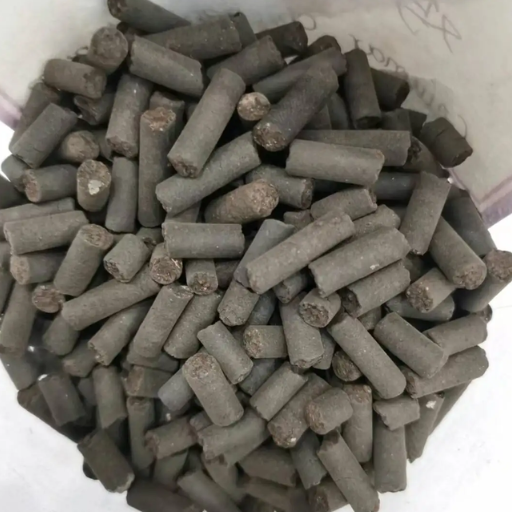
Organic fertilizer consisting of chicken manure is appreciated for its richness in various nutrient types that stimulate plant growth. It is mainly made of essential plant nutrients like nitrogen (1.1%), phosphorous (0.8%) and potassium (0.5%) with each playing crucial roles at different stages of growth. Nitrogen supports vegetative growth, phosphorus stimulates root development and flowering, while potassium enhances overall plant vigor, enhancing resistance against diseases. Chicken manure also gives plants sufficient amounts of essential trace elements: calcium, magnesium, and sulfur. Calcium strengthens cell walls, magnesium aids photosynthesis and sulfur helps enzymes function as well as aiding in the synthesis of amino acids by being involved in this process. – This mix-up makes all parts to have a complete diet to assist sustainable agriculture.
Key Nutrients Found in Chicken Manure
Nitrogen (N): The concentration of nitrogen is usually about 1.1% which makes it a primary nutrient in chicken manure. For example, it promotes synthesis of amino acids which are responsible for the building block proteins that are essential for both vegetative growth as well as chlorophyll production.
Phosphorus (P): Its content in chicken dung is approximately 0.8%. ATP has phosphorus as one of its main components, which serves as the currency for energy generation to fuel plant cells. Thus, it supports flower formation, seed development, and other factors, including root system establishment and DNA replication.
Potassium (K): This nutrient, which is around 0.5% K, mainly functions to activate enzymes for processes such as photosynthesis. It also incorporates several proteins together with synthesizing starch and, therefore, improves the general health status of the crop, henceforth serving against any attack by diseases thereof.
Calcium (Ca): Chicken manure contains significant amounts of calcium, which is important for strong cell walls and, thus, for ensuring stable structure within plants.
Magnesium (Mg): The concentration of magnesium in chicken manure is enough to enable chlorophyll synthesis, which plants require to trap light energy for photosynthesis, a process that converts light energy into chemical energy.
Sulfur (S): Sulfur is needed for the production of proteins, enzymes, vitamins, and essential oils. It also plays a big role in the synthesis of certain amino acids. Its presence, therefore, ensures the efficient occurrence of these biological processes within chicken manure.
Understanding the Role of Micronutrients
Even though they are needed in trace amounts, micronutrients are important for plant health and productivity. These include iron (Fe), manganese (Mn), boron (B), molybdenum (Mo), copper (Cu), zinc (Zn), chlorine (Cl), and nickel(Ni). Iron serves as an electron carrier during different enzymatic processes and also aids chlorophyll formation. Manganese activates various enzymes vital for photosynthesis, respiration and nitrogen metabolism. Boron facilitates the transportation of carbohydrates and forms cell walls while molybdenum helps in nitrogen fixation and nitrate reduction. Copper is critical for lignin synthesis and strengthening plant structures, whereas zinc promotes protein synthesis and growth hormone generation. Chlorine controls osmosis and ionic balance, on the other hand nickel supports enzyme action concerning nitrogen metabolism. Thus balanced supply of micronutrients is crucial for optimal plant growth and development.
Balancing the Soil pH with Chicken Manure
Chicken manure is a viable soil amendment for balancing soil pH due to its high nutrient content and organic matter. When applied to soil, it functions as a liming agent by neutralizing both acidic and alkaline soils. The primary method behind this equilibrium is that the dung has an inherent pH of 6.5-8.0, which can bring highly acidic or alkaline soil towards neutrality.
The decomposition process of the organic matter in chicken manure also releases carbon dioxide, which, when dissolved in the soil moisture, forms carbonic acid. This weak acid reacts with alkali components in the soil, gradually reducing its pH level. Conversely, chickens have a high calcium carbonate content that acts as lime in neutralizing acidity within soils. These biological interactions ensure that chicken waste products maintain a stable and balanced environment for proper uptake of nutrients by plants.
Technical parameters include pH – 6.5–8 and calcium carbonate equivalent ranging from 5-6% total dry weight. The correct application rates depend on initial substrate pH and specific plant needs. Still, generally, two or three tons per acre are recommended for obvious improvement in soil reaction state (pH).
Best Practices for Applying Organic Chicken Manure Fertilizer
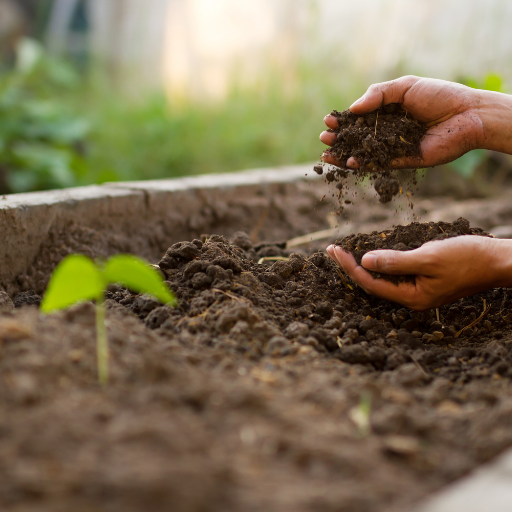
Like all other fertilizers, organic chicken manure fertilizer follows certain best practices that can maximize its benefits and guard against any problems. First of all, it is necessary to compost the manure properly to minimize the chances of pathogen contamination and weed seeds in the soil—also, proper composting mans stable nutrient contents especially nitrogen which becomes easily available for plant uptake. Before applying the organic chicken manure fertilizer, ensure that you are aware of the soil’s nutrient levels and pH by conducting a soil test. This will help determine how much manure should be applied to achieve optimum soil conditions.
To support this view, fall application of chicken manure is recommended so that there will be enough time for the breakdown of nutrients into the soil by the growing season. If one applies it in spring, they have to do it weeks before planting, taking care not to put too much as this would cause root burn due to excessive nutrient requirements. The manures must be spread uniformly over a given surface area till about 6-8 inches below land surface. What is more important for maintenance purposes is approximately 1-2 tons per acre annually, which will sustain fertility without causing nutrient imbalances.
This may concern whether or not, when applying fertilizer material, there are some key things one has to put into consideration, such as the type of crop being grown at that particular season; leafy greens and root crops generally prefer higher nitrogen content while fruiting crops require well-balanced nutrition among others (Anonymous). Finally, adhere to your local laws and guidelines concerning the use of animal waste, particularly regarding its effects on pollution and runoff.
Should I Apply Chicken Manure during Spring or Fall?
Observe these best practices to get an answer to when you can apply chicken manure so that positive results outweigh negative ones. Our reviewed sources found that most researchers mainly say chickens should be put in their plots during autumn months. By timing it this way, the nutrients will have enough time to be broken down and get integrated into the soil before the onset of spring planting season hence minimizing chances of nutrient burn in young plants.
In autumn, after harvest is over, apply manure and incorporate it into soil by tilling 6-8 inches deep. The nutrients in chicken manure, typically nitrogen (N), phosphorus (P), and potassium (K), need stabilization time to become available for the next cropping season.
If you must add it in springtime, let it be at least 3-6 weeks before planting because if you don’t, the high contents may lead to root burns or damage, thereby reducing uptake efficiency. Normally, for general maintenance purposes, this can be approximately 1-2 tons per acre per year to maintain long-term fertility without developing a nutrient imbalance in the process.
Is There Any Fixed Amount of Chicken Manure I Need?
The rate at which you should apply chicken manure varies depending on factors such as crop type grown, soil conditions prevailing and existing levels of nutrients. Nonetheless, some guidance from leading agricultural sources generally recommends that most field crops require between two and three tons of chicken manure per acre annually for optimal soil fertility (Anonymous). About 2.5 – 5 pounds per square foot for vegetable gardens translates roughly into one to two inches of composted manure. It is also necessary to perform a soil test ahead of time to determine appropriate application rates based on specific plant nutrient requirements while avoiding excessive nitrogen amounts likely to result in nutrient imbalances or even environmental pollution from leaching out (anonymous). With regular monitoring and adherence to guidelines, one ensures that the use of chicken wastes is done sustainably as well as effectively in agriculture.
Spreading Chicken Manure evenly techniques.
Efficient spreading of chicken manure involves using particular apparatuses and consistent application actions. When it comes to large fields, using a manure spreader guarantees equal distribution on the entire farm. Calibration of the spreader is necessary to match the application rate recommended to avoid over or under-application. For smaller fields or vegetable gardens, one can distribute manure manually before raking/tilling, which would cause even coverage. Putting this into account will improve distribution through grid or sectioning. Besides, before spreading, it should be well-composted, and there should not be any lumps in the manure so that nutrients are distributed uniformly and soil incorporation improved. It is important to clean and maintain the spreading equipment regularly to work efficiently and last a long time.
Composting Chicken Manure for Enhanced Benefits
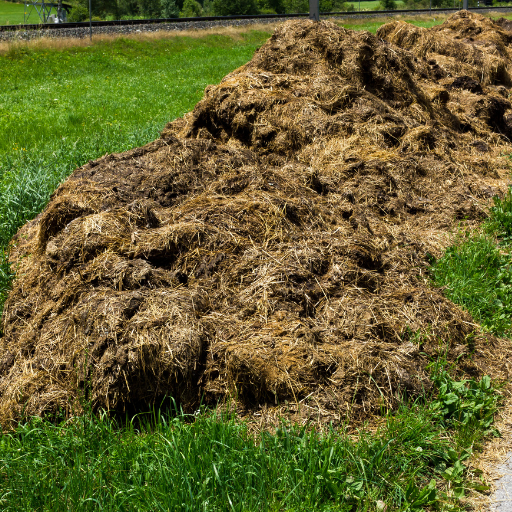
Chicken manure composting is more beneficial because it converts uncooked dung into stable, nutrient-rich organic amendment. The practice begins by collecting fresh manure and mixing it with materials that have high carbon content, such as wood shavings or straw, so as to balance the nitrogen-to-carbon ratio. A good composting process involves maintaining enough moisture levels like a wet sponge and proper aeration through regular compost pile turning. Aerobic decomposition in this case helps to reduce pathogens and weed seeds which may be in the manure. It is important to monitor temperatures; the temperature in the compost pile should reach thermophilic levels (131-160°F) for effective destruction of pathogens and weed seeds. Ultimately, it can be known that when chicken manure has been well broken down, it turns dark brown crumbly and smells earthy-nice thus making it a good amendment enhancing soil fertility and structure improvement. Sawdust chicken manure is usually well-rotted, blackish-brown, and crumbly with an earthy smell, showing its readiness to improve soil fertility and structure.
Why Compost Chicken Manure Before Use?
Composting chicken manure before use is vital since it stabilizes nitrogen contents, thus minimizing chances of plant burn due to high ammonia presented by fresh ones. The process also destroys pathogens as well as weed seeds, making them safe for use in gardens and agricultural fields. Also, well-composted chicken manures easily get absorbed by plants, thereby improving soil structure, water retention, and microbial activity, which increase overall soil fertility & productivity.
Steps to Create the Perfect Compost Pile
- Select a Suitable Location: Choose a place for your compost pile that drains freely but still receives partial sunlight so that decomposition will occur on time without drying out too rapidly.
- Build the Base Layer: Begin with a coarse layer such as straw or twigs to enhance drainage and ventilation. A thickness of about 4-6 inches is most appropriate.
- Add Green and Brown Materials: Spread layers of green materials (nitrogen-rich) like vegetable scraps, grass clippings, and manure with brown materials (carbon-rich) such as dry leaves, straw, or shredded newspaper. Aim at a ratio of approximately 3 parts brown to 1 part green.
- Moisture and Turn Regularly: Maintain the compost pile’s moisture levels equivalent to a squeezed-out sponge. Rotate the pile continuously every fortnight to ensure it continues to have enough air, which is vital in enhancing organic matter decomposition by aerobic microorganisms.
- Monitor Temperature: Utilize a compost thermometer to ascertain that your pile attains thermophilic temperatures (131-160°F) and maintains them throughout this period. This will help kill pathogens as well as weed seeds. In case the temperature falls below or goes above this range adjust either the moisture or air supply accordingly until you achieve the required temperature.
- Curing: The pile should be left alone for several weeks after active composting ends so that curing may take place. This stabilizes it further, breaking down anything else remaining into a dark, crumbly, earthy-smelling finished product.
- Final Product: It can be known that compost is ready when no heat is generated whenever one turns it over uniformly, producing an earthy smell and uniformly textured end product. Well thus, rich nutrients in soil fertility & structure have been improved in agricultural fields or gardens using this nutrient-enhanced humus layer
Common Composting Problems and Their Troubleshooting
Talk of the commonest problem in composting that we’re going to mention is foul smells. The smell of a compost pile may be unpleasant due to too much moisture or unbalanced matter types. To fix this, rotate the compost more often and introduce more brown stuff so that it can breathe well. Another issue common with this pile type is dryness, which thwarts decay. Solve this by incorporating water throughout by mixing thoroughly; ensure that the mixture remains constantly moistened. In addition, if a person finds that a heap does not diminish in temperature even after several weeks, nitrogen levels are low or no air penetrates through the mass. Thus, adding more green ingredients will provide oxygen and flipping the pile will help increase its decomposition power through microbial action.
Using Chicken Manure in Different Gardening Scenarios
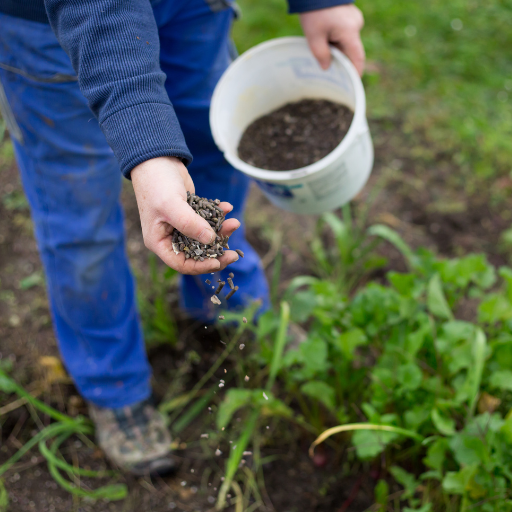
Chicken faeces has a wealth of nutrients like nitrogen, phosphorous and potassium that make it a very valuable resource in different gardening contexts. When properly composted and applied in vegetable gardens, it can boost plant growth and yield remarkably. The high nitrogen in the chicken makes vegetables to grow more leaves and decompose organic matter faster. It also enhances root development as well as blooms by enhancing soil structure in flower gardens. Additionally, fruit trees and lawns receive sustained nutrient release leading to improved overall health and better yields.
However, one must ensure that the manure is well-composed to avoid burning crops and killing pathogens. This could be done by incorporating it into the soil before planting or applying it as a side dressing during the growing season to prevent nutrient overload.
Is Chicken Manure Suitable for All Plants?
This is because some plants may not respond well with the application of chicken manure containing high nitrogen levels; which can be too much for them. According to experts’ advice, this kind of manure is ideal for fruits, flowers, lawns, and other crop species requiring higher levels of Nitrogen (N). Composted chicken manure has an optimal NPK (nitrogen-phosphorus-potassium) ratio of around 4-3-2 for these plants, providing sufficient nutrients that aid their healthy growth rates.
Because of its richness in nitrogen content, the application of chicken manure needs to be controlled, especially when dealing with delicate plants such as low-nitrogen ones like tomatoes or peppers’ seedlings. Thus, diluted composted manure should be used sparingly not to burn out the soil’s nutrients while keeping it healthy at all costs. Moreover, adding the chicken poop into your patch several months before planting helps minimize burning off while giving time for the stabilization process.
Chicken manure can also benefit fruit trees, but it must be allowed enough time for complete decomposition to eliminate its potential carriers of diseases. If the manure is top-dressed in autumn, it decomposes slowly through winter and remains a constant source of nutrients throughout the season.
Chicken manure is a precious fertilizer in most garden scenarios. Still, it should be used appropriately according to unique growth requirements and sensitivities of different plant species for optimal yields and damage prevention.
How to Use Chicken Manure in Vegetable Gardens
Before using chicken manure in vegetable gardens, compost it adequately. Fresh chicken manure is very strong with ammonia content so high that plants can be damaged. However, composted chicken manure offers slow-release nutrients and improves soil texture. Such composted manure should be applied during fall or at least half a year before planting. This will allow enough time for stabilizing and integrating these nutrients into soils. Spread a 2-3 inch layer of composted manure over the garden bed and work it into the top 6-8 inches using a tiller or garden fork. Side dress with composted manure during growing season for more established plants to enhance growth and productivity. Always rinse vegetables thoroughly before consumption so as not to infect them with any residual pathogens from the soil
Manifold Profit of Chicken Dung for Flower Beds and Lawns
For flower beds and lawns, the richness of chicken manure in essential nutrients such as nitrogen, potassium, and phosphorus, among others, is why it offers several benefits. These elements are necessary for achieving luxuriant growth and improving the colorfulness of blossoms. Also, chicken manure has organic matter that helps increase soil aeration and water retention resulting in balanced growing media for both flower beds and lawns. Moreover, composted chicken dung releases nutrients gradually reducing their uptake frequencies when used as fertilizers. It can also improve the overall health of the soil microbiome by facilitating useful microbial action that promotes plant well-being while preventing diseases in them upon becoming well-composted.
Addressing Common Concerns with Chicken Manure Fertilizer
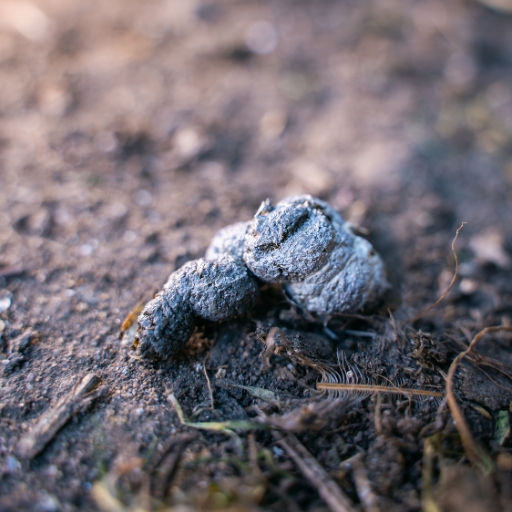
Many concerns arise when considering the use of chicken manure fertilizer. First and foremost, odor is a common issue as fresh chicken manure smells bad. Therefore, it is recommended that one properly composts the manure before using it because this process significantly reduces the smell. Another worry is the emergence of other pathogens such as Salmonella and E-coli. Burning at high temperatures eradicates harmful microbes in composted chicken waste making it safe for soil application in gardens. Also, there are worries about excessive nitrogen content in chicken droppings, which can potentially burn plants if applied too much at once. Otherwise, fully composting menure and using small amounts sparingly as part of a balanced soil amendment program would answer that problem. Finally, weed seeds may also be present in poultry manure, but complete composting also helps eliminate these seeds, thus preventing unwanted growth.
How to Minimize Odor from Chicken Manure
Correct composing should occur first. Chicken manure needs to be composited by heating a compost pile for several days and maintaining it between 131°F and 170°F (55°C to 77°C). This high temperature kills odor, pathogens, and weeds very effectively.
Another method is balancing nitrogen content by mixing carbon-rich materials like straw, wood chips, or leaves since they contribute to the strong smell emanating from excess nitrogen, in this case. Applying a carbon-nitrogen ratio around 25:1 contributes to efficient decomposition and decreases odor emissions.
Furthermore, spreading the manure promptly into the soil while incorporating it thoroughly can help make milder odors over less time with no intensity at all; hence, covering them with breathable fabric or tarp will keep off all the smells without interfering with air circulation, which is essential for composting. Also, by constantly turning the mound of waste one will make sure it is well aerated so as to break down organic materials and reduce foul smells. These methods are given technical guidelines and provide an overall way of effectively dealing with chicken manure smell.
Ensuring Safety: Reducing Pathogen Risks
Reducing pathogen risks from chicken manure requires attention to proper composting techniques and handling approaches. On the other hand, composting should be done at high temperatures (131°F to 170°F or 55°C to 77°C) for a minimum of three days to kill pathogens that cause harm. It is also important to turn the compost heap regularly for uniform heating and faster decomposition, as this helps minimize contamination dangers.
Furthermore, applying composted manures months before harvesting crops – usually not less than 120 days before harvest for soil-contact crops and 90 days prior for other crops – further reduces foodborne illness hazards. This can also include biosafety precautions such as using gloves when working with the material, washing hands thoroughly after contact with it, and sanitizing any used equipment, which may prevent the transfer of disease-causing agents within the livestock environment. By following these guidelines, use safety can be enhanced significantly when fertilizing with chicken dung.
Mitigating Nutrient Runoff and Environmental Effects
In as much as there are different approaches that can be taken in managing nutrient runoff and its environmental impacts, several strategies can be employed to avoid excessive nutrients from polluting water bodies. Buffer vegetation zones around fields are one effective way of capturing and using excess nutrients before they enter into rivers. Cover crops are another method that helps to sponge the remaining nutrients and reduces soil loss during off-seasons. Precision farming techniques such as soil testing and targeted fertilizer application ensure that nutrients are only applied where they are required thus reducing excess run off.The use of constructed wetlands also acts as a sort of natural filter where agricultural runoffs bring in the dissolved substances and decompose them before they reach large water bodies. All these measures collectively play a role in the sustainable management of agricultural nutrients, thereby avoiding eutrophication while at the same time preserving water quality.
Reference sources
- Garden Basics
- Source: Garden Basics
- Summary: Offers insights from a retired organic landscape consultant on the use of chicken manure as an excellent soil amendment, emphasizing its benefits and practical applications in organic farming.
- Dr. Earth
- Source: Dr. Earth
- Summary: Provides a detailed overview of chicken manure in organic fertilizers, outlining its nutrient content, cost-effectiveness, and various forms such as composted or dried poultry waste.
- University of Nevada, Reno Extension
- Source: University of Nevada, Reno Extension
- Summary: Discusses the safe use of chicken manure in home gardens, noting its high nitrogen, potassium, phosphorus, and calcium content, and its rich organic matter, which significantly benefits soil health and plant growth.
Frequently Asked Questions (FAQs)
Q: What are the main benefits of using organic chicken manure fertilizer?
A: Organic chicken manure fertilizer is a rich source of organic nutrients and natural fertilizer for garden soil. It not only adds essential nitrogen but also improves the soil structure, enhancing its ability to retain water and nutrients. Additionally, it’s a sustainable option that supports organic crop production and environmentally-friendly gardening practices.
Q: How do I properly apply chicken manure to my garden?
A: You can use aged chicken manure or manure compost directly in your lawn and garden. Fresh manure should be composted to reduce the risk of burning plants and to kill pathogens. Applying composted poultry manure in the fall and allowing it to break down over the winter is a common practice.
Q: How much chicken manure should I use per square foot of garden soil?
A: The amount of chicken manure you need can vary. A general recommendation is to use about 20-30 lbs of aged manure per 100 square feet of garden soil. It’s important to avoid over-applying, as chicken manure contains high levels of nitrogen that can harm plants if used excessively.
Q: Is chicken manure safe to use on all types of plants?
A: Yes, chicken manure can be used on a wide variety of plants, including trees and shrubs, vegetables, and lawns. However, because of its high nitrogen content, it’s best suited for plants that thrive on rich fertilizer. Aged or composted poultry manure is preferred to prevent any potential damage from the concentrated nutrients in fresh manure.
Q: Can I use chicken manure directly from the chicken coop?
A: Fresh chicken manure from the chicken coop should be composted before use to reduce the risk of burning plants and eliminate harmful bacteria. Fresh poultry manure is very high in nitrogen and can be too strong for plants if not properly aged or composted.
Q: How does chicken manure compare to cow manure as a fertilizer?
A: Chicken manure generally has higher levels of nitrogen, phosphorus, and potassium compared to cow manure, making it a more potent natural fertilizer. Cow manure, on the other hand, is less concentrated and can often be used fresh with less risk to plants. Both are valuable for adding organic matter to garden soil.
Q: What is compost tea and how is it made from chicken manure?
A: Compost tea is a nutrient-rich liquid fertilizer made by steeping composted chicken manure in water. To make it, place 1 part composted manure in a porous bag, submerge it in 5-10 parts water, and let it steep for a few days. The resulting liquid can then be used to water plants, providing them with a soluble form of nutrients.
Q: What are the advantages of using pelletized chicken manure?
A: Pelletized chicken manure provides a convenient, consistent, and slow release of nutrients. These pellets are easy to handle, apply, and store, making them an efficient option for adding organic input to soil. This form of manure fertilizer is particularly useful for evenly distributing nutrients in raised chickens’ gardens and organic crop production areas.
Q: Can chicken manure be used in local garden compost systems?
A: Yes, chicken manure can be a valuable addition to local garden compost systems. It helps accelerate the composting process by providing a rich source of organic matter and nitrogen. When properly composted, it can be used as a complete fertilizer to enhance soil health and support organic production in backyard gardens.






